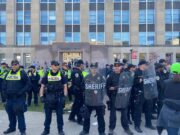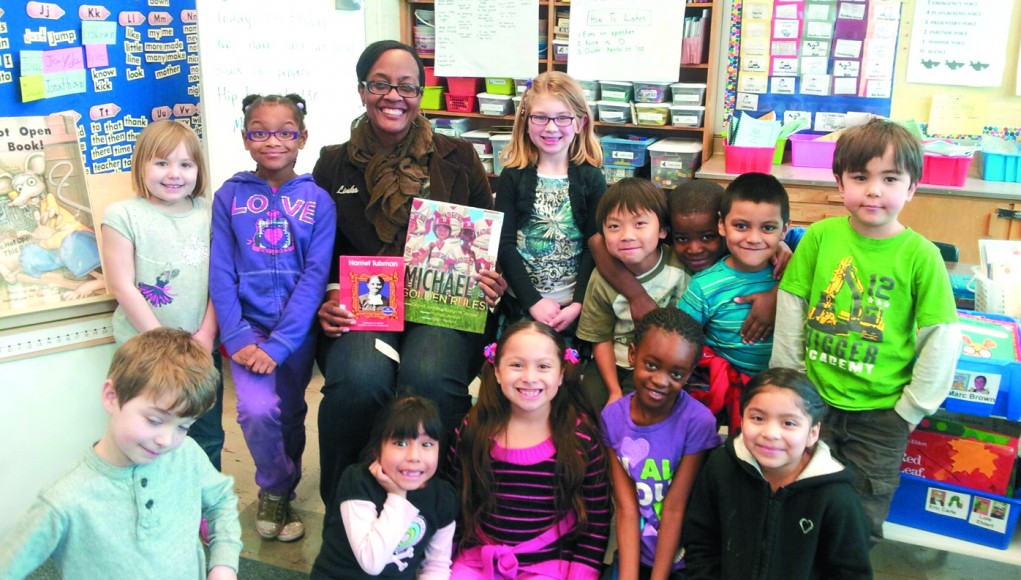It’s hard out here for an educator, but you know that. I often ask myself: To what extent does education serve the purpose of normalizing our condition? What does it mean to teach citizenship in a world that doesn’t recognize us all as equal citizens?
I grew inspired reading on Septima Clark’s Citizenship Schools and The Civil Rights Movement, originally founded to teach voter literacy. Full ‘citizenship’ was seen as possessing the skill set and knowledge needed to fight for the well-being of one’s community. In my head, this stands in opposition to my 8th-grade self writing a paper justifying the bombings of Hiroshima and Nagasaki, civilizations decimated by the U.S. hydrogen bomb. Yellow people’s history was not spared from the violence of white educators. We weren’t made to question conventional narratives of history but to affirm nationalist truths. I was scared to give the right answer, or an answer that acknowledged a people’s humanity. A perspective is not just a perspective when it entails the erasure of one’s being. “Education” is a tool of assimilation.
Part of our task, as educators, is grounded in self-perception. We ask: How will we expect students to learn if they are unable to view themselves as learners with the ability to create new forms of knowledge, and to teach others that knowledge? But we also need to conceive newly a teacher’s role, and what it is we are striving for. To bring about freedom, is to create the conditions where one can free themselves. It’s a beautiful thing, but it’s hard to say any of us know what freedom is, when we talk freedom in purely theoretical terms, as something we are forever striving for rather than something we can build with the help of community.
I wonder how to apply this concept of freedom to subjects defined by their rigidity of thought, and spaces where knowledge is spoken of in already established terms. In reality, freedom should exist as a goal and a daily practice. This involves embracing the uncomfortable and becoming, I hate to say it, “squishy” with one another. Acknowledge that you do not know everything, even if the front of the class is where you preside. The arbiter of learning needs to be a full participant in the learning process, and re-conceptualize “teacher.” Educators need to follow knowledge wherever it takes them, especially when it comes from their students. In this process the educator and students are affirming one another, building off one another.
“We need to view education as a human right like clean water and breathable air. When the right to an education that is healthy and deepens our understanding of the world is systematically deprived, it is a crime committed in the same vein as the denial of water and air that keep us alive. Simply to create a building with four walls and adding classrooms with desks is not adequate. We need to create a consensus amongst those who preside over these classrooms to help create the conditions for freedom.”
I continue to digest information, words that illustrate the potential of education to be a tool for our collective liberation. I’m blown away by the possibility but a little bit tempered by the abstract nature of these terms, “freedom,” “justice,” “liberation”… the list of buzzwords that stay printed on paper is endless and daunting. But I am frustrated by the material realities that remind us of the barriers to liberatory practice. Teaching to Transgress by bell hooks, is a text that redefined what it meant for me to be an educator. But I cannot bring my children into a circle to read to each other and grow inspired because there is no space for a circle and the district will not even pay for the books. So, tell me what’s up with that bell hooks? Your words leave me breathless, but their application leaves me hopeless.
However, this isn’t “feeling sorry,” this is identifying the roots of an oppression, and seeing how this oppression manifests within a classroom. There needs to be consensus on education’s purpose before taking action, with the necessity to act being only deepened by the size of the problem. We need to view education as a human right like clean water and breathable air. When the right to an education that is healthy and deepens our understanding of the world is systematically deprived, it is a crime committed in the same vein as the denial of water and air that keep us alive. Simply to create a building with four walls and adding classrooms with desks is not adequate. We need to create a consensus amongst those who preside over these classrooms to help create the conditions for freedom. There exist modes of thinking that are tantamount to violence and we will act against these modes in the way we teach. I believe an educator needs to be dynamic, constantly questioning the systems of thought that work to prevent our dynamism as human beings. Embody the principles you seek to impart.
I’m still working on it.




























